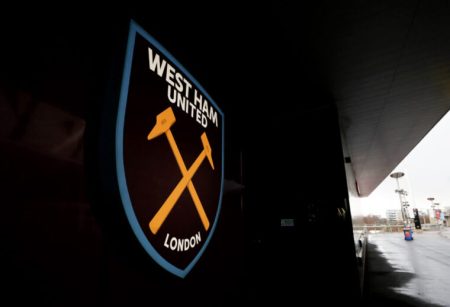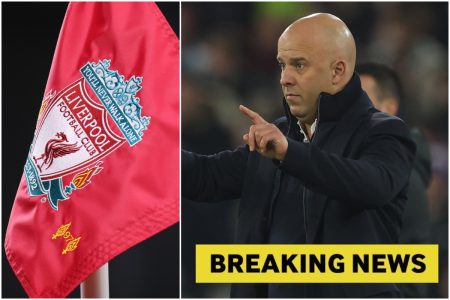Clubs Warned Over Unlawful Gambling Sponsors
In a significant move, the Gambling Commission has issued stern warnings to Everton, Nottingham Forest, and Leicester City, all Premier League clubs, over the front-of-shirt sponsors they have promoted, which are deemed unlawful in Great Britain. The Australian bookmaker Stake, currently Everton’s front-of-shirt sponsor, will cease operations in the country by March 11, 2024, following an investigation by the commission. This decision comes after a video featuring the Stake logo, alongside an adult actress, went viral on social media outside Nottingham Trent University, raising serious concerns about the brand’s impact and legality. The commission’s warning is a clear indication of the growing regulatory scrutiny over gambling sponsors in sports, especially those that operate without a valid license in the UK. The stakes are high, as the clubs are threatened with fines, and individual club officers could face prison sentences if they fail to implement measures to prevent British consumers from transacting with these unlicensed sites.
The Scope of the Problem
Everton is not the only club caught in this regulatory web. Nottingham Forest and Leicester City are also under the spotlight. Nottingham Forest’s front-of-shirt sponsor, Kaiyun, an Asian sportsbook, operates without a license in Great Britain and is also an official partner of Chelsea and Crystal Palace. Similarly, Leicester City’s front-of-shirt sponsor, BC Game, is an online gambling firm that is unlicensed in the UK. The Gambling Commission’s investigation was triggered by the viral video featuring the Stake logo, but it has revealed a broader issue: the prevalence of unlicensed gambling companies in the sponsorship landscape of top-tier football clubs. This situation has not only legal implications but also raises ethical concerns about the promotion of gambling activities through high-profile platforms like Premier League match shirts, which are seen by millions of fans, including young and vulnerable individuals.
Club Responses and Proactive Steps
Everton has not issued a public comment on the Gambling Commission’s announcement, although it is understood that the club’s partnership with Stake is global and not specifically targeted at the UK market. The Friedkin Group, which owns Everton, inherited this partnership, and the club is likely focusing on ensuring compliance with the commission’s demands to avoid any further sanctions. Nottingham Forest and Leicester City have also remained silent, but both clubs are believed to have taken proactive steps to address the situation. Forest is reportedly working to satisfy the Gambling Commission’s requirements, while Leicester is likely to be under similar pressure to demonstrate that any measures to geo-block the BC Game site are effective. The commission’s letter to these clubs emphasizes the need for robust due diligence and the implementation of blocking mechanisms to ensure that British consumers cannot use these unlicensed services.
Regulatory Measures and Due Diligence
The Gambling Commission’s warning is a part of its broader efforts to crack down on unlawful gambling activities in the UK. The letter to the clubs outlines specific steps that must be taken to ensure compliance. The commission is seeking assurance that the clubs have performed due diligence on their white label partners and that British consumers cannot access or transact with these unlicensed gambling sites. The clubs will be required to demonstrate that they have effective geo-blocking measures in place to prevent UK users from bypassing restrictions using tools like Virtual Private Networks (VPNs). The commission will also conduct independent verification to ensure these measures are working as intended. The emphasis on due diligence and effective blocking is crucial, as failures in these areas could lead to severe penalties, including fines and criminal charges for club officials.
Future of Gambling Sponsorship in the Premier League
The warnings to Everton, Nottingham Forest, and Leicester City come at a critical juncture as Premier League clubs have already agreed to withdraw gambling sponsorship from the front of their match-day shirts by the 2026-27 season. This decision was part of a broader commitment to protect fans and reduce the visibility of gambling brands in sports. The upcoming season will be the last in which these logos can be prominently displayed, marking a significant shift in the league’s sponsorship landscape. The regulatory pressure is likely to intensify in the coming years, with more clubs expected to face similar scrutiny and potential sanctions. This move reflects a growing awareness of the risks associated with gambling and the need for sports organizations to take a more responsible and cautious approach to sponsorship deals.
The Broader Impact on the Industry
The Gambling Commission’s actions against these Premier League clubs are part of a larger trend of increased regulation and oversight in the gambling industry. The closure of Stake’s UK-facing website by March 11, 2024, is a clear example of the regulatory measures being taken to protect consumers. The commission’s warnings to the clubs also serve as a reminder to all sports organizations and sponsors that they must adhere to UK gambling laws and take proactive steps to ensure compliance. This case highlights the challenges faced by sports clubs when dealing with global sponsors, especially in industries that are heavily regulated. It also underscores the importance of maintaining the integrity of the sport and protecting fans from potentially harmful activities. As the regulatory landscape continues to evolve, clubs and sponsors will need to navigate these changes carefully to avoid legal and reputational risks.











